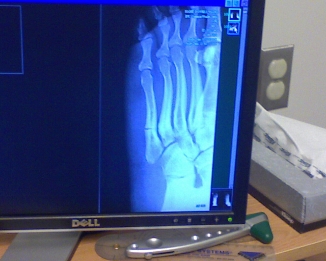 Do you need a lawyer to file a FELA claim? Not necessarily. In this blog we’ll discuss specific instances when it’s better to handle the claim yourself.
Do you need a lawyer to file a FELA claim? Not necessarily. In this blog we’ll discuss specific instances when it’s better to handle the claim yourself.
I'm in the business of suing the railroad, it’s true. But I'm NOT in the business of taking money from hard-working railroad employees unnecessarily.
Frankly, there are plenty of situations where you don't need a lawyer. Either on your own or with the help of a union representative, you are completely capable of negotiating a settlement of your FELA injury claim in the following scenarios if, and this is the crux of the FELA law, you can prove the railroad is at fault and the injuries are related to that railroad screw up.
Armed with this information, you get a resolution that is satisfying both financially and personally. Who doesn't like being able to say they took care of business?
(There are also people who would rather hand off the responsibility of resolving the injury claim to a lawyer regardless, because they just don't want to deal, and that is ok too. If that's you, click here for a guide to FELA lawsuits).
Read on but first, hear my one caveat: before you file your own claim, speak to a lawyer (for free) to make sure you have everything you need to be successful.
Now, five instances where you don’t need a lawyer to file your own FELA claim:
1. Your claim is worth $20,000 or less
The reason for this threshold is that claim agents often have greater authority under this amount, and can potentially offer it on the spot. At a minimum, they can justify the trade-off cost of hiring a defense lawyer and by adding that to the value of the claim, they can get it resolved with you. They don't like plaintiff lawyers any more than most of you do. Click here for some examples of different injury values.
2. You have a “No Lost Time Injury”
Maybe you had stitches or a deep bruise and the railroad found you a light duty job or your supervisor gave you a flagging job until you felt 100 percent. Assuming your doctor said that was ok, of course. BECAUSE ORDERS IN VIOLATION OF YOUR TREATING PROVIDER ARE ILLEGAL. Your claim is purely pain and suffering and the railroad is happy to get a General Release signed by you to make sure the claim doesn't become something more.
3. You're only looking for lost wages
Maybe you got a deep bruise or sprain/strain and lost time, but the injury completely resolved. You lost time from work and you really just want to get back what money you are out of pocket. The railroad loves to get rid of these. And calculating your lost wages is pretty straight forward. Here is a calculator for coming up with the number.
4. You have an obvious and simple injury
Broken finger. Sprained ankle. Poison ivy. Same as before. You have a defined universe of injury, lost wages plus a little, or lost wages alone. In any event, you are only interested in continuing to work. But read this before you settle.
5. You desperately need the money
I'm a realist. Sometimes life dictates your choices. If you were previously behind in your mortgage, maybe a quick resolution solves your problem. Or maybe it’s a college tuition payment instead. Or a car payment that’s way behind. The point is, if you really need it, and are not out of a career as a result of the injury, a non-lawyer resolution can make the most sense in the right circumstance. Compensation from a lawsuit can take a long time.
If you fit into one of these five scenarios you may be ready to file your own claim. But you can still talk to a FELA lawyer, with no obligation, and I recommend that. There may be aspects of your case you haven’t considered and it’s possible your case is more complex than you realize. A good lawyer will help you sort it out.
I get calls every week where I map out for the employee what the theory of liability is and then explain what their negotiating strategy should be. When they get off the phone they know their next steps and they don’t owe me anything. Sometimes you just need someone to point you in the right direction.
Photo by Marc Wietzke











